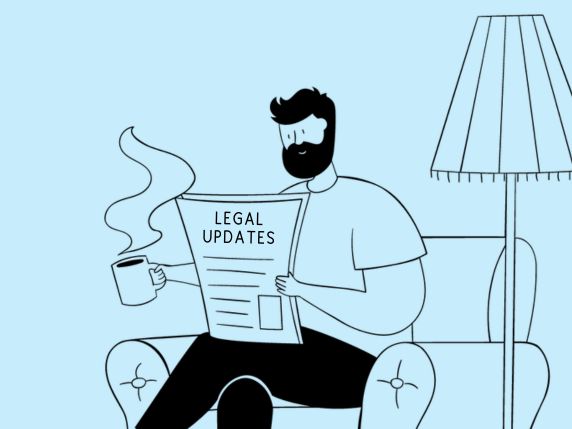In this month's update, we'll cover:
Commercial
Improvements being made in tackling online counterfeiting and piracy
Earlier this month the European Commission (EC) reported that progress has been made in tackling online sales of counterfeit goods and preventing the placement of adverts on websites infringing intellectual property rights.
Of the two reports produced, the first describes the evaluation results of the functioning of the 2011 Memoranda of Understanding on the sale of counterfeit goods, where rights owners and online platforms have stated that close co-operation and information exchange is key to improving the efficiency and effectiveness of their anti-counterfeiting measures. As well as the legal obligations and the commitment of signatories, voluntary co-operation has been reported to provide flexibility to deliver efficient solutions relating to the sale of counterfeit goods.
The second report describes the evaluation results of the functioning of the 2018 MoU on online advertising and intellectual property rights. It found that the MoU promotes good practice and is operating satisfactorily due to the commitment of signatories and that, to date, signatories consider that there is no need to amend the text of the MoU.
Corporate
Financial Reporting Council (FRC) issues statement on accounting for lease modifications
The FRC announced on 18 August that it will not pursue regulatory action if issuers take advantage of the Accounting for Lease Modifications (Amendment to IFRS 16 – COVID-19-Related Rent Concessions) such as accounting requirements for changes in lease payments, including rent concessions, before adoption by the EU.
The May 2020 amendments can be used for annual reporting periods beginning on or after 1 June 2020 or in some cases earlier, but must still be adopted by the EU, which is expected to take place before the end of the Brexit transition period.
If you use the reliefs under the May amendment, you should disclose this in the notes to financial statements and should ensure lawfulness of distributions is considered carefully before EU adoption.
The FCA and ESMA have stated that they will not prioritise supervision action relating to whether issuers decide to apply the reliefs under the amendment, and while recognising that the EU does not currently support these reliefs, the FCA will not pursue regulatory action against companies taking advantage of them.
The FRC is following suit when it comes to annual and interim accounts, but if the amendment is not endorsed as and when expected by the EU, this position may change.
Employment:
Clarity provided for employers on statutory payments in relation to CJRS
The Employment Rights Act 1996 (Coronavirus, Calculation of a Week's Pay) Regulations 2020 came into force on 31 July 2020 providing much needed clarity on the calculation of certain statutory payments, which are to be made with reference to a furloughed employee's normal week's pay, not their reduced furlough pay.
The circumstances where these calculations are relevant are where an employee is paid for time off to look for work or arrange training, and for notice pay, redundancy pay, compensation where there is a failure of the employer to provide a written statement of reasons for dismissal, and for basic and additional awards for unfair dismissal.
These Regulations are complicated and if you require specific assistance you should contact your accountant and/or our specialist employment solicitors.
Put simply, those employees who have normal working hours, whose pay does not vary or varies with the amount or timing of work, reduction in pay due to furlough does not count.
If an employee does not have normal working hours, a week's pay is calculated using their reference salary for claiming furlough pay under the Coronavirus Job Retention Scheme (CJRS), but without the furlough scheme cap (so calculated using 100% instead of 80% or a tapered rate of the employee’s wages).
Government issues further guidance on self-isolation and employment
On 31 July 2020, Public Health England (PHE) updated its guidance to increase the minimum self-isolation period for COVID-19 from seven to ten days for those who have symptoms and are awaiting a test, or for those who have tested positive for COVID-19 (whether or not they have symptoms).
If you live with others, all other household members must stay at home and not leave the house for 14 days, which of course means they are unable to attend work during this time.
Where employees are required to self-isolate for 14 days after returning to the UK from abroad, the new guidance published this month states that, where possible, employees should work from home whilst self-isolating. Where this is not a possibility, employees can agree with their employer to take annual or unpaid leave to cover the 14-day self-isolation period.
Employers should consider any disciplinary action up to and including dismissal very carefully if it relates to government mandated self-isolation, as employment tribunals will consider public health guidance on COVID-19 amongst other factors when looking at future cases.
53% rise in reports of furlough fraud
As of the end of July, there was a 53% increase in reports of fraudulent claims under the CJRS to 6749, compared to 4,400 at the end of June.
It is likely that much of this ‘fraud’ is a result of genuine mistakes, as the scheme is complex, particularly since the introduction of ‘flexible furlough’ allowing people to work part time.
Employers are required to pay national insurance contributions for furloughed employees starting this month and the scheme changes again in September and again in October before the scheme ends. This makes the scheme more complex still and may lead to higher reports of fraud.
It is advisable that employers seek professional advice if you have not done so already and undertake extensive job retention scheme audits as soon as possible. Then you will be able to promptly notify HMRC of any mistakes to avoid penalties for inadvertent errors and a ‘failure to notify’ which can amount to a penalty of up to 100 per cent of the income tax charge. It is a defence to show reasonable measures have been taken to comply and so employers must at least be able to demonstrate that.
Intellectual Property
IPO consults on addresses for service just being in the UK and Channel Islands
A consultation closed on 14 August in which the IPO considered changing Address for Service regulations. This means that after the end of the Brexit transition period, reference to the European Economic Area will be removed and only Addresses for Service in the UK or Channel Islands will be accepted.
UK representatives before the EUIPO will only be able to appear in proceedings already being heard before the end of the transition period and many relevant sections of legislation would be required to be changed. A decision is expected from the ICO in the next few months.
WIPO publishes consequences for Madrid System due to Brexit
WIPO recently announced that the level of protection for the trade mark under the Madrid System will depend on the status of the mark at the end of the transition period.
If an international registration under the Madrid System has not been refused or protected by the EUIPO by 1 January 2020, holders will be able to apply for a national trade mark registration with the Office of the United Kingdom (UKIPO) in the nine months after January 1, 2021. The initial date of the designation of the EU will be preserved.
Holders whose international registration or subsequent designation of the EU, inscribed in the International Register after the end of the transition period, but before 1 January 2021 will have the same right. But the nine-month period will be counted from the date when the international registration or subsequent designation of the EU is inscribed in the International Register.
If protected before 1 January 2021, following the end of the transition period, a comparable national trade mark, recorded on the Register of the United Kingdom, will be created for every international registration protected in the EU before the end of the period.
These newly created comparable UK trade marks will be independent from the international registration and governed by UK law. Holders will have to manage them directly with the UKIPO.
Holders of existing international registrations will not be negatively affected by the end of the transition period. If you require more information on this, please contact our specialist IP solicitors.
Data Protection
Cybersecurity policy breaches rife amongst employees during pandemic
Almost two-fifths of business decision-makers have dismissed employees because of a cybersecurity policy breach since the pandemic began, according to a survey by Censuswide on behalf of Centrify.
More than half of the business decision-makers surveyed believed that working from home made employees more likely to breach security, including through the use of personal laptops and not changing passwords.
More than half of the employers surveyed have already banned, or planned to ban staff from using personal devices to work from home and 65% had made substantial changes to their cybersecurity policies in response to breaches and to COVID-19.
Employers need to communicate that the same principles of data protection apply at home as in the office, including that a breach could lead to severe disciplinary action, as the employer could find themselves responsible for significant data breaches if they have not taken appropriate steps to protect it.
ICO issues statement on the NHS Test and Trace app
On 13 August, a spokesperson for the ICO made the following statement:
“For the public to participate, and for the app to be successful, they need to have trust and confidence to hand over their data. Providing a high level of transparency and putting data protection at the heart of an app or service should help build people’s trust in the systems involved”.
The ICO reassured the public that it has engaged directly with the Department for Health and Social Care from the outset in respect of the Test and Trace app, and will continue to advise on the protection of people’s personal data in relation to the Act.
US Department of Commerce and EU Commission issue statement on Privacy Shield
Earlier this month the U.S. Department of Commerce and the European Commission started discussions about an enhanced EU-U.S. Privacy Shield framework. This follows the ruling from the CJEU in the Schrems II case in July that found this framework is no longer valid for the transfer of personal data from the European Union to the United States.
The European Union and the United States’ shared aims to protect the data of their citizens and commitment to privacy and the rule of law, means a new robust framework is in both of their interests and they have stated that they will continue to work closely together to face future challenges in the area of data protection.
ICO re-opens regulatory sandbox
This is a free service by the ICO to support organisations using personal data to develop innovative products and services. Applications can be made by all sizes and types of business across the private, public, and charitable sectors.
The applications this year should relate to either children’s privacy or data sharing and involve innovation and will be particularly of interest if they relate to an area where there is genuine uncertainty about compliance.
If successful, the applicants are given the time of ICO’s specialist staff to help ensure they comply with data protection rules, which in turn reassures businesses and builds public trust in innovative products and services, where data protection is concerned.
If this is of interest to your business, you can make an expression of interest using the following link: https://ico.org.uk/for-organisations/the-guide-to-the-sandbox/.
Brexit
EC proposes Regulation on application of Union tariff rate quotas
On 14 August 2020, the European Commission adopted a proposal for a Regulation on the application of Union tariff rate and other import quotas.
Since 1 February 2020 the UK has been a ‘third country’, having left the EU, and the Protocol on Ireland/Northern Ireland attached to the Withdrawal Agreement will apply to that area from the end of the Brexit transition period.
The Protocol states that Northern Ireland is part of the UK's customs territory, and can be included in the territorial scope of the UK’s World Trade Organization schedules, but that references to the EU's customs territory includes the land territory of Northern Ireland.
This Protocol does not give rights and obligations to third countries, suggesting that imports under EU import quotas applying to goods originating in a third country and brought into Northern Ireland could not be counted towards a third country's rights regarding the EU, unless agreed by the third country. This could allow for the EU's quotas to be avoided, posing a risk to the workings of the internal market.
To prevent this, the proposed Regulation states that the EU's tariff rate quotas and other import quotas should be available only for goods imported and released into free circulation in the EU and not in Northern Ireland. Once adopted by the European Parliament and Council, the Regulation would apply from 1 January 2021.
*Please note that this update does not constitute formal legal advice and should not be relied upon as such. Always ask a solicitor if you are unsure of how the law relates to your business.






